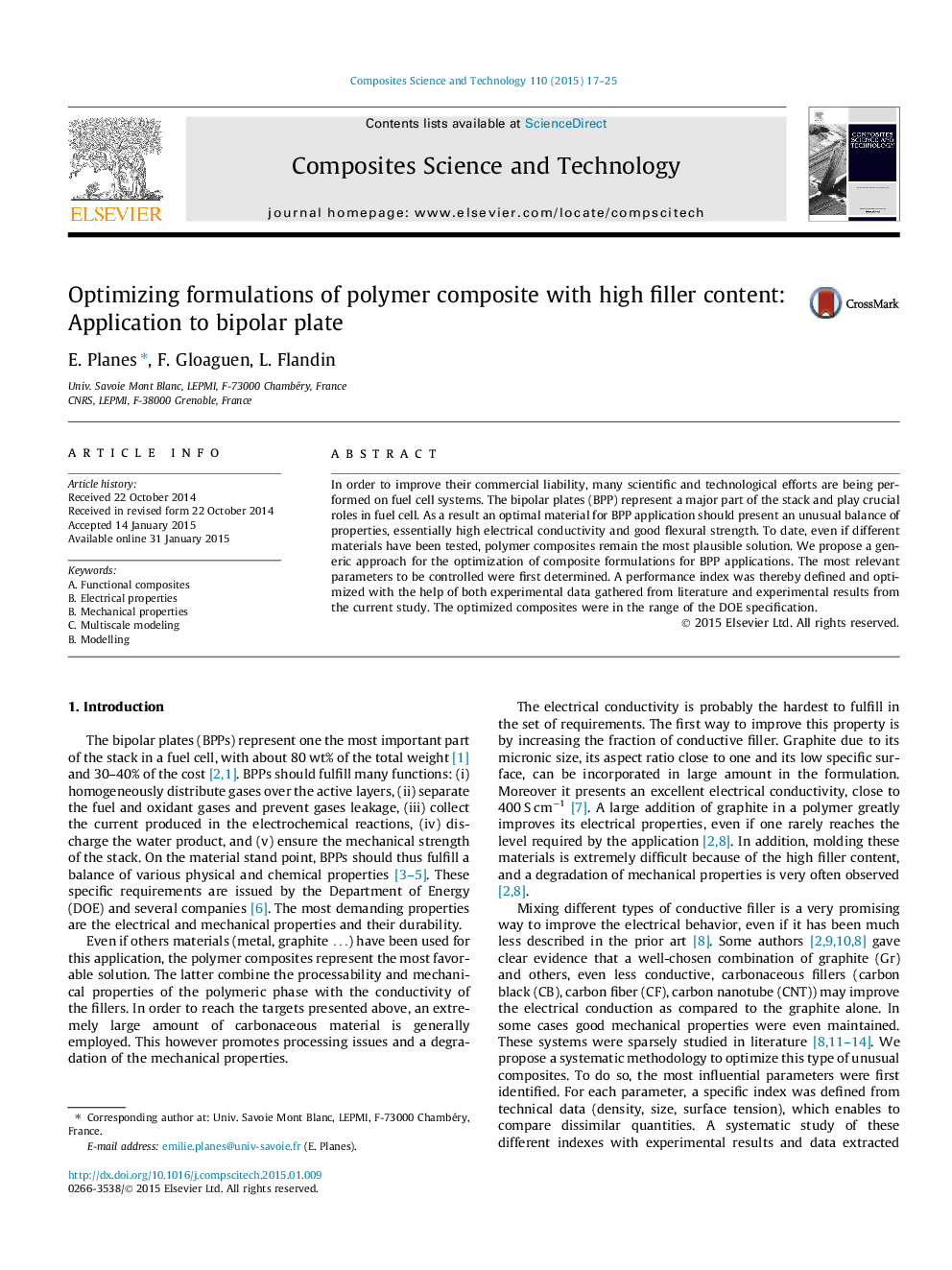| Article ID | Journal | Published Year | Pages | File Type |
|---|---|---|---|---|
| 7215503 | Composites Science and Technology | 2015 | 9 Pages |
Abstract
In order to improve their commercial liability, many scientific and technological efforts are being performed on fuel cell systems. The bipolar plates (BPP) represent a major part of the stack and play crucial roles in fuel cell. As a result an optimal material for BPP application should present an unusual balance of properties, essentially high electrical conductivity and good flexural strength. To date, even if different materials have been tested, polymer composites remain the most plausible solution. We propose a generic approach for the optimization of composite formulations for BPP applications. The most relevant parameters to be controlled were first determined. A performance index was thereby defined and optimized with the help of both experimental data gathered from literature and experimental results from the current study. The optimized composites were in the range of the DOE specification.
Keywords
Related Topics
Physical Sciences and Engineering
Engineering
Engineering (General)
Authors
E. Planes, F. Gloaguen, L. Flandin,
